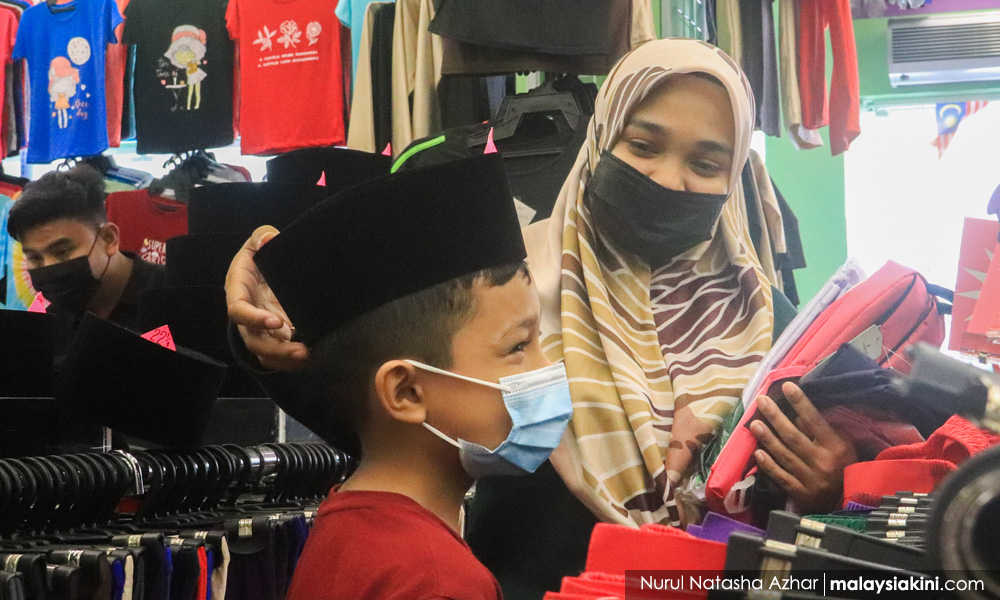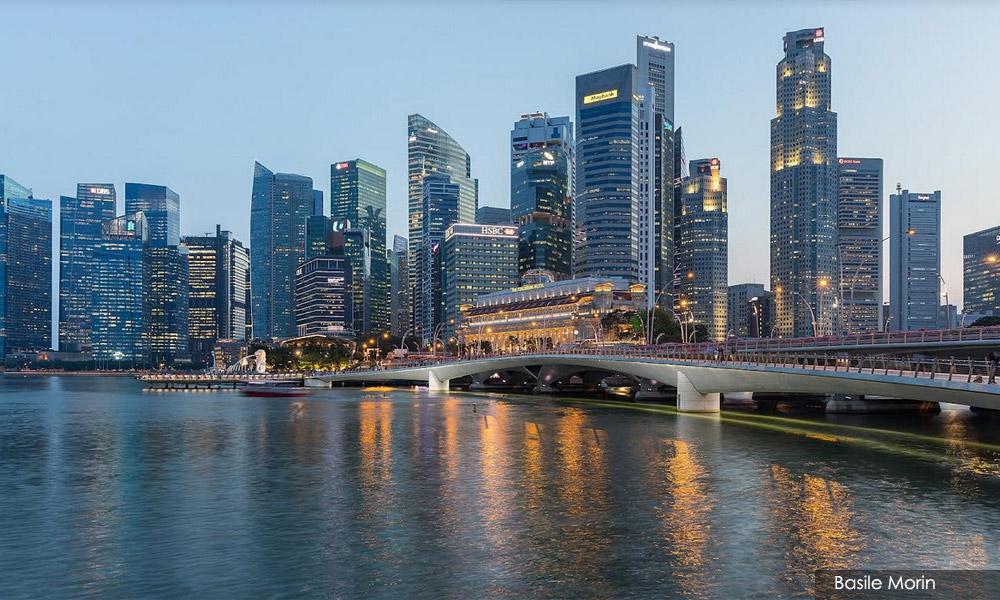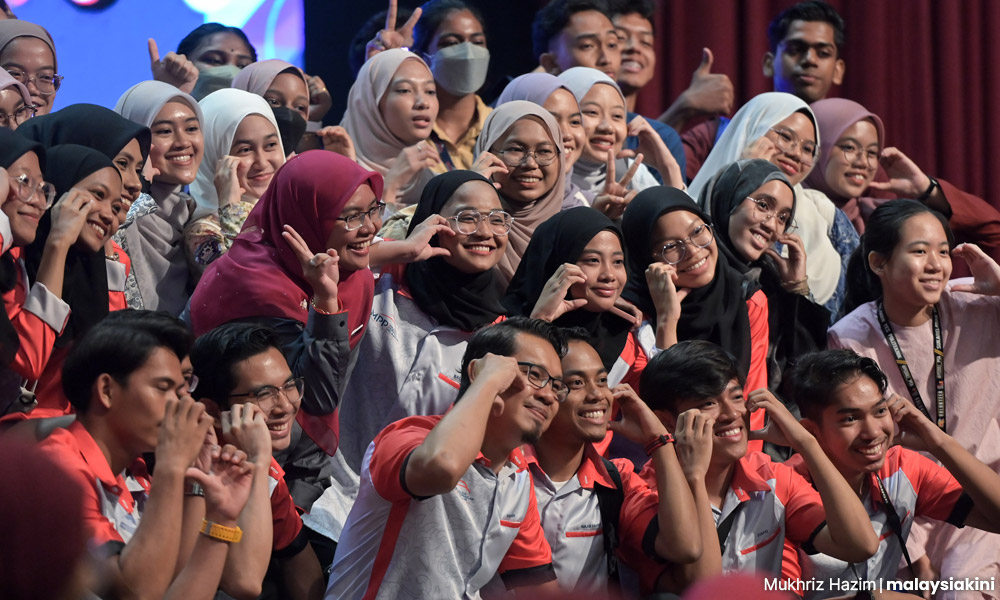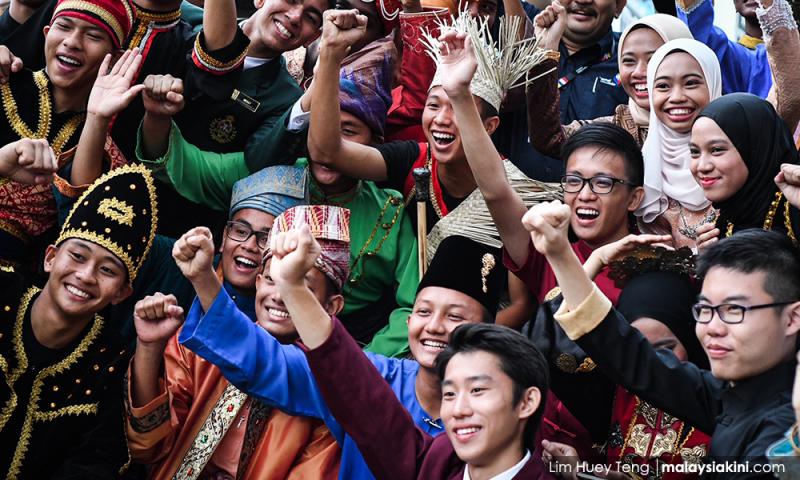LETTER | Walk the talk as Malaysia Madani
LETTER | We are over 60 years into Malaysia and the time has come for some hard questions and assumptions that have taken over the minds of some Malaysians.
The whole question of ‘Malaysian Malaysia’ and the word secularism has to be intelligently discussed.
What is wrong with Malaysian Malaysia? How is this different from One Malaysia?
Just because this has been a slogan introduced by an opposition party does not make it wrong. If so, what does it mean to be a Malaysian?
Today, secularism does not mean an absence or negation of God. There are nations like Indonesia and India that are secular in style but allow the freedom of worship.
The ethnic impasse created by former governments is now coming to roost and we need fresh thinking that contributes to the building of a cohesive society in Malaysia.
We all need to broaden our mindsets and we in Malaysia respect the fact that Islam is the official religion of the country but there is a need for greater sensitivity to the freedom of other faiths and for inter-faith engagements.
The Islamic political party PAS should not dictate the status of our constitution, the ‘Rukun Negara’ or the status of Islam in Malaysia.
To call other Malays ‘kafir’ is to go beyond what is permissible, not to mention how this derogatory term is used against other ethnic groups.
All of us need to grow and part of that growth requires an understanding of our diversity as a nation. We are all born as human beings and all our several identities are acquired as we grow.
Depending on our parents, we often take an ethnic and religious identity, but as a nation, we are all united as Malaysians.

The journey is one of transcendence. We grow in our understanding and move from an ethnic identity to a national identity. The more inclusive we become the more capable we are to treat others with respect and understanding.
When we transcend, we do not negate. By being a Malaysian I have not negated my ethnic identity but instead have grown to become a Malaysian. This mindset change is much needed. Otherwise, we remain as ethnic bigots.
Use Rukun Negara as guidance
We have been challenged by several visions for the last 66 from the days of the ‘Rukun Negara’ to today’s Malaysia Madani.
All these visions were well articulated and presented but the most critical factor was the absence of practitioners and role models who actioned what they believed.
Many expressed their beliefs but were not congruent. If Malaysia Madani is to write a different chapter on the progress of Malaysia, then we have to see this practiced in action, conduct and behavior.
The New Economic Policy (NEP) was a 20-year experiment, using the ‘Rukun Negara’ as a guide to enhance national unity.
No one begrudged this policy but unfortunately, those who rode on the tiger of NEP could never dismount and ethnicity became the basis for its prolongation.
The failure lies not in the policy but in its implementation. There is a serious need to look at this reality.
With so many Institutions be it Mara, Felda, Felcra, Petronas, Risda, Perkim, Jais, Zakat and the many other GLCs that have spawned policies by now should have ensured that a vast number of bumiputras gained economically.
Yet, what is the net result?
The political elite have made their day. The disproportionate wealth held by politicians, by CEOs of GLCs has all robbed the poor.

Take accountability
Yayasan Akalbudi was a ‘muhibah’ venture, so BN and all its various leaders should be held accountable to what has been done to it.
They condoned the behavior of self-interest and took the lead against the wishes of the vast majority of bumiputras for whom this policy was for.
Even though this has been prolonged, the time has come for the setting up of another Independent National Consultative Committee to discuss and shape the future while at the same time conducting closed-door honest conversations on our collective failures.
There is no more whitewashing and condoning the wrong that has been perpetuated on racial grounds.
None of this can be changed overnight and politicians alone cannot do it. There is a need for a wider consultative group.
Think of the future generation
Our education system is in a mess and there is nowhere else that is more polarised. So unless firm action is taken, we are going to continue prolonging a mess.
Public and private universities are ethnically polarised. Mediocrity is replacing meritocracy. The lack of exams as a basis for evaluation severely undercuts the quality of education.
The school system is fragmented into national and vernacular schools, religious schools, private schools, church-based schools, home schools and tuition centres.

We need meritocracy for otherwise we will compromise on the standards of our doctors, lawyers and engineers.
For years, we have heard of Bumiputra candidates being passed who have not met the required grades. We have to stop bluffing ourselves be it in the MARA residential schools or at other race-based institutions.
The Chinese and Tamil-based schools seem to be doing well and their enrollment is increasing. The national schools, which should be the school of preference, have gone down.
Today parents sacrifice a lot to send their children to private international schools. If we do not shift national policy, we will see an even more polarised Malaysian society in the decades to come.
Upgrade civil service
There is a need also to look at our civil service. Our delivery system is very poor. Instead of being a service that facilitates, the civil service has bloomed into another regulatory service.
There are just too many employees and the need to keep them occupied has resulted in requirements that are superfluous. As a result, little Napoleons have sprouted out in all departments.
I have even personally experienced difficulties in meeting the Education Minister, despite several reminders.
Because of that, we ended up meeting another official who then requested us to bring their challenges to the attention of the minister.
We are not just critical individuals but we are also individuals in civil society who would like to see Malaysia Madani make a difference.
There is a need to have an Ombudsman, someone to whom we can bring our concerns to, because without an effective and actionable civil service in the country, Malaysia Madani is in grave danger.
The writer is an NGO activist involved with ‘change management, education and issues of conscience’.
The views expressed here are those of the author/contributor and do not necessarily represent the views of Malaysiakini.
RM12.50 / month
- Unlimited access to award-winning journalism
- Comment and share your opinions on all our articles
- Gift interesting stories to your friends
- Tax deductable
